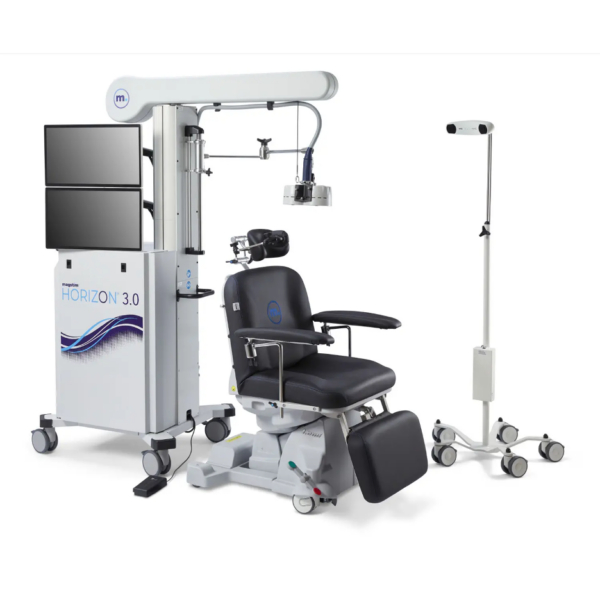 Transcranial Magnetic Stimulation (TMS) Therapy is a form of neuromodulation used to treat patients with brain disorders, most commonly depression. It is safe, has efficacy rates as high as 80%, and is well tolerated.
Transcranial Magnetic Stimulation (TMS) Therapy is a form of neuromodulation used to treat patients with brain disorders, most commonly depression. It is safe, has efficacy rates as high as 80%, and is well tolerated.
TMS Therapy works by stimulating regions of the brain that are impaired by a patient’s condition. Targeting specific regions of the brain activates the neurons in those areas by depolarizing them repeatedly until they return to normal functioning.
It is important to note that the pulses from the TMS coil do not affect the entire brain. Instead, the magnetic field is highly targeted, and depending on the treatment parameters, it may stimulate 5-6 centimeters into the brain, directly beneath the TMS coil.
Unlike medications, TMS therapy is not associated with the common side effects of weight gain, sexual problems, sedation, or memory loss. It is also much less invasive than deep brain stimulation, electroconvulsive therapy (ECT), and other neuromodulation treatment options.
Currently FDA cleared to treat major depression and obsessive-compulsive disorder, there is also a growing body of scientific evidence supporting the use of TMS as a treatment for a wide range of brain disorders. These disorders include bipolar depression, tinnitus, generalized anxiety, migraines, autism, smoking cessation, post-traumatic stress disorder, and chronic pain.
TMS IS NON-INVASIVE
The “non-invasive” part of TMS Therapy means TMS has very minimal negative effects on your body and doesn’t upend your daily schedule. There are no surgeries and TMS does not require anesthesia or sedation. Most often, TMS is administered in an outpatient setting, and patients may resume normal daily functions upon completing a treatment.
TMS IS NON-SYSTEMIC
The “non-systemic” part of TMS Therapy means that nothing enters your blood stream. There are no shots or drugs administered. There is no need for chemicals or substances to circulate throughout the body. This is an important distinction to make because it means that TMS does not impair you. In fact, TMS is perhaps the least intrusive form of depression therapy available.

